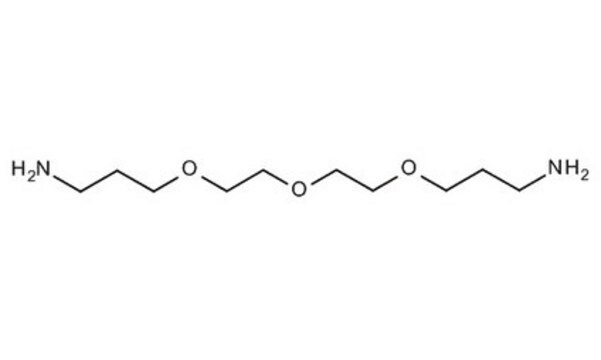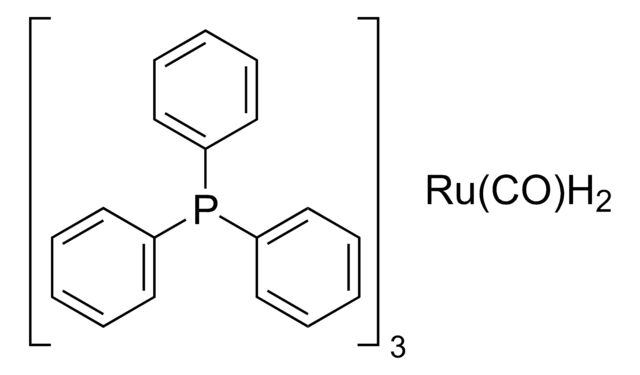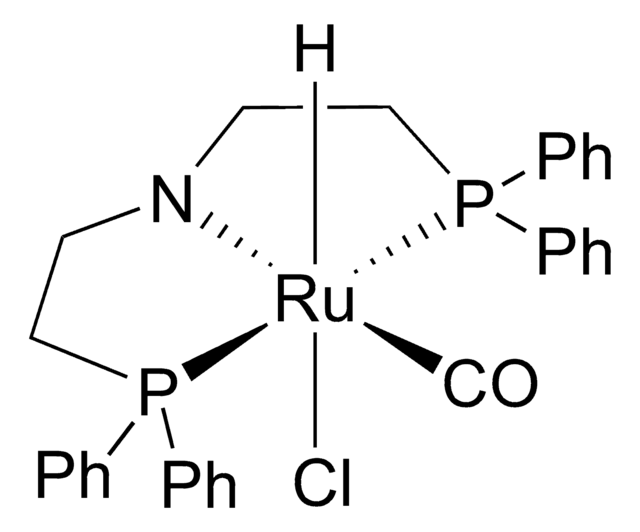369519
4,7,10-Trioxa-1,13-tridecanediamine
97%
Synonym(s):
O,O′-Bis(3-aminopropyl)diethylene glycol
About This Item
Recommended Products
Quality Level
Assay
97%
form
liquid
refractive index
n20/D 1.464 (lit.)
bp
146-148 °C/4 mmHg (lit.)
density
1.005 g/mL at 25 °C (lit.)
SMILES string
NCCCOCCOCCOCCCN
InChI
1S/C10H24N2O3/c11-3-1-5-13-7-9-15-10-8-14-6-2-4-12/h1-12H2
InChI key
JCEZOHLWDIONSP-UHFFFAOYSA-N
Looking for similar products? Visit Product Comparison Guide
General description
Signal Word
Danger
Hazard Statements
Precautionary Statements
Hazard Classifications
Aquatic Chronic 3 - Eye Dam. 1 - Met. Corr. 1 - Skin Corr. 1B
Storage Class Code
8A - Combustible corrosive hazardous materials
WGK
WGK 2
Flash Point(F)
282.2 °F
Flash Point(C)
139 °C
Personal Protective Equipment
Certificates of Analysis (COA)
Search for Certificates of Analysis (COA) by entering the products Lot/Batch Number. Lot and Batch Numbers can be found on a product’s label following the words ‘Lot’ or ‘Batch’.
Already Own This Product?
Find documentation for the products that you have recently purchased in the Document Library.
Customers Also Viewed
Our team of scientists has experience in all areas of research including Life Science, Material Science, Chemical Synthesis, Chromatography, Analytical and many others.
Contact Technical Service















